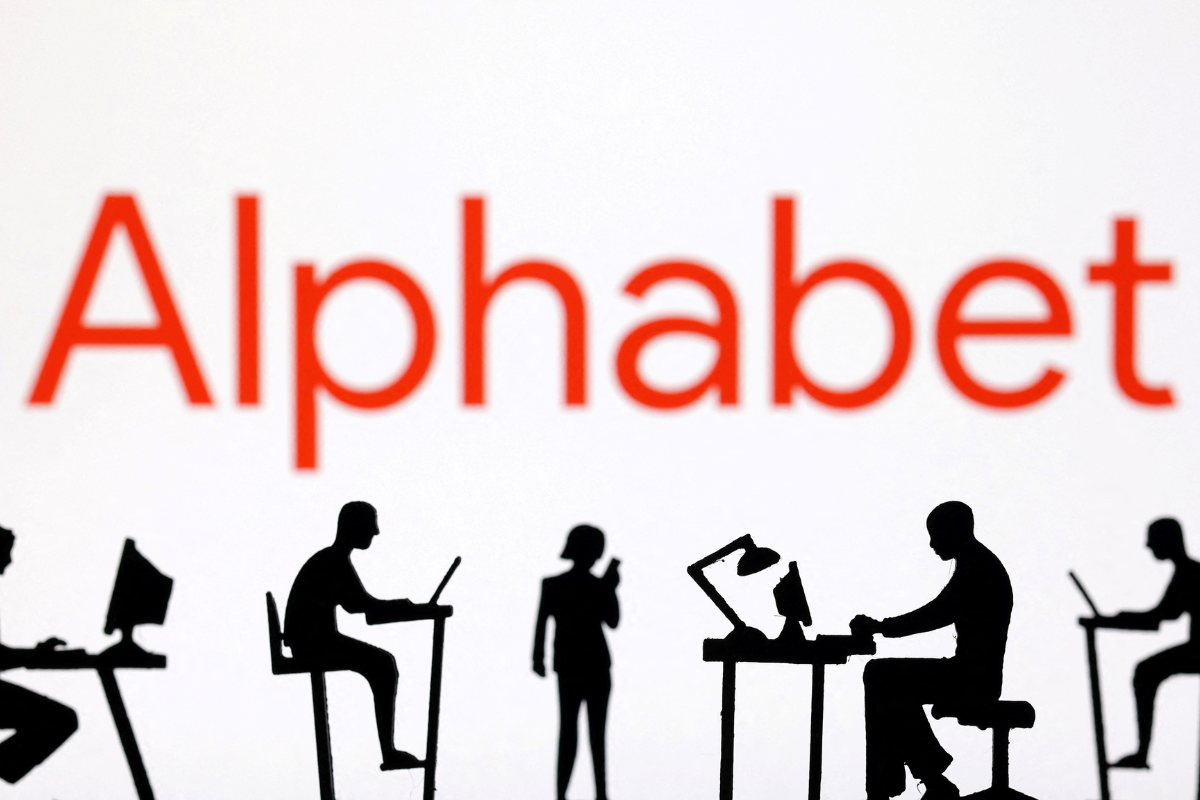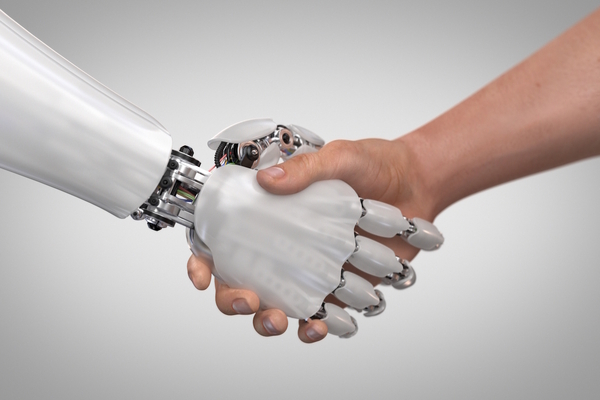Replacing the CEO with a robot?

Paramjit Uppal at AND Digital asks whether CEOs should be worried about AI stealing their job
For decades, the possibility of automation replacing human jobs has loomed large over the majority of working people. CEOs, however, have always seemed too far removed from the effects of automation to be meaningfully impacted.
But a recent global survey of 600 CEOs, The CEO Digital Divide, revealed a surprising truth: nearly half (43 per cent) fear that Artificial Intelligence (AI) might one day replace them.
This fear might seem unfounded; the CEO role demands a complex mix of strategic thinking, leadership, and human connection—areas where AI’s capabilities are still not sufficiently developed. However, with AI advancements blurring the lines of human and machine intelligence, the question remains: could AI ever truly "steal" the CEO’s job?
AI: a threat or a tool to unlock higher potential?
Stanford University research has documented that AI has demonstrably surpassed human capabilities in specific tasks. From meticulously classifying images to deciphering natural language with uncanny accuracy, and even tackling complex visual reasoning, AI’s competence is undeniable.
The fear of a super-intelligent AI takeover is a powerful narrative, but is it grounded in reality? The recent CEO Digital Divide survey reveals a concerning trend: one-third of CEOs, perhaps swayed by these anxieties, have opted to ban AI tools in the workplace. Perhaps the question to ask here is whether this fear of AI is actually inhibiting potential instead of protecting jobs.
The human edge: leadership and strategy
While AI excels at processing vast amounts of data and identifying patterns, it currently lacks the essential capabilities that define effective leadership and strategic thinking. These uniquely human strengths remain the cornerstone of a CEO’s success in the face of increasing automation.
Empathy, critical thinking, and the ability to inspire and guide a team are intangible qualities that continue to be out of reach for AI. Leaders use empathy to understand the motivations and needs of their people, fostering a collaborative and productive environment. Critical thinking allows them to analyse complex situations, weigh risks and opportunities, and arrive at sound decisions. Finally, the power to inspire ignites a collective drive and commitment within teams, propelling them forward towards shared goals.
AI’s limitations extend beyond the realm of human emotion. While AI can analyse vast sets of data to identify trends, complex strategic planning often requires a nuanced understanding of the business landscape, industry dynamics, and even social and political factors. Similarly, advanced logical reasoning, a cornerstone of strategic decision-making, remains a challenge for AI systems.
These human strengths present a clear path forward for CEOs in the age of AI. Instead of fearing displacement, forward-thinking leaders should embrace AI as a powerful tool to augment their skillset. By leveraging AI’s analytical capabilities to gather invaluable insights and free themselves from tedious tasks, CEOs can dedicate more time to honing their uniquely human strengths. This allows them to become more effective leaders, strategists, and ultimately, drivers of organisational success.
The power of AI: a win-win for CEOs and businesses
Delivering to their full potential in a globalised world means that CEOs are constantly juggling complex strategic decisions, navigating shifting market landscapes, and inspiring a diverse workforce; all of these require a unique blend of skills and focus. Fortunately, AI presents a powerful opportunity to alleviate some of these burdens, freeing CEOs to focus elsewhere, where they can create meaningful value for their organisations.
A growing number of CEOs are embracing AI not just for the company, but for themselves. The recent CEO study revealed that over three-quarters (76 per cent) of CEOs have implemented AI training for their staff, while nearly half (45 per cent) admitted to secretly utilising AI tools to enhance their own work. This trend highlights the growing recognition of AI’s potential to augment human capabilities, even at the highest levels of an organisation.
Stanford University research supports this view. Their study demonstrated that employees who integrated AI into their workflows experienced significant improvements in both productivity and the quality of their work. This positive impact extends to the CEO role as well.
Are CEOs doomed if they don’t embrace AI?
The answer isn’t a simple yes or no. However, CEOs who choose to be knowingly ignorant of AI and its potential implications risk falling behind very quickly.
Automation and intelligent analysis of massive, complex data sets are no longer futuristic concepts – they’re essential tools for thriving businesses. CEOs who lack AI literacy will find themselves at a competitive disadvantage. They may miss crucial opportunities to streamline operations, optimise workflows, and unlock valuable insights hidden within the mountains of data that their business likely already has.
This failure to recognise an opportunity can lead to sluggish growth, a stifling of innovation, and ultimately, a decline in shareholder value. Investors increasingly recognise the potential of AI to drive profitability and are more likely to favour companies that actively take advantage of these technologies.
The good news for proactive CEOs is that the future for those who choose to work alongside AI is incredibly bright. By strategically implementing AI with a focus on augmenting human capabilities, not replacing them, CEOs can unlock new levels of insight, capability, and productivity.
Continuous upskilling is essential for CEOs themselves, too. By staying informed about the latest AI advancements and applications, they can ensure they’re leading the charge, not simply reacting to change.
The future of the C-Suite: collaboration, not competition
While some may fear AI usurping the CEO’s position entirely, a more likely scenario emerges—one of collaboration, not competition. The future of the C-suite lies in humans utilising the strengths of AI to achieve optimal results.
Ultimately, the key for CEOs lies in recognising AI not as a usurper, but as a transformative force. By actively engaging with AI and fostering a culture of continuous learning within their organisations, CEOs can confidently navigate the future. This ensures their own continued relevance and, most importantly, the continued success of their businesses.
The boardroom of tomorrow won’t be an arena for people versus machines, but a collaborative space where human wisdom and machine intelligence work in synergy to drive growth and innovation.
Paramjit Uppal is CEO and Founder of AND Digital
Main image courtesy of iStockPhoto.com and DKosig

Business Reporter Team
You may also like
Related Articles
Most Viewed
Winston House, 3rd Floor, Units 306-309, 2-4 Dollis Park, London, N3 1HF
23-29 Hendon Lane, London, N3 1RT
020 8349 4363
© 2025, Lyonsdown Limited. Business Reporter® is a registered trademark of Lyonsdown Ltd. VAT registration number: 830519543





